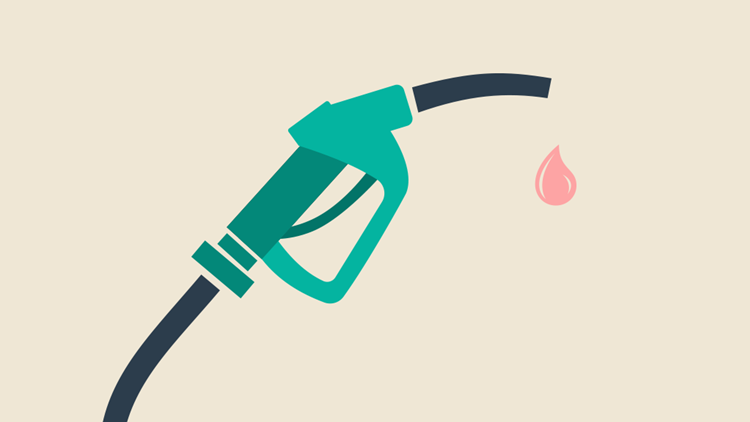
When a major natural disaster strikes, it’s not uncommon for federal officials to pull out all the stops at their disposal to speed the wheels of recovery. That’s what’s happening now in Louisiana, in the wake of Hurricane Ida.
In Bayou Country, one of the big needs right now is fuel. Fuel for vehicles, fuel for generators and fuel for refrigeration.
Normally, dyed diesel fuel—earmarked only for farming and other specific purposes and untaxed as such—cannot be used legally in vehicles on the highways and roads. The diesel is dyed so that state inspectors can readily spot its use in over-the-highway vehicles. Taxed diesel carries no such dyes.
Because of the shortages brought on by Hurricane Ida, the Internal Revenue Service says it won’t penalize vendors or purchasers of dyed diesel fuel that is sold for highway use – but this relief only applies to a specific number of Louisiana parishes.
In Louisiana, parishes are equated with the county structures used in other states.
The Louisiana parishes getting diesel fuel relief are: Ascension, Assumption, East Baton Rouge, East Feliciana, Iberia, Iberville, Jefferson, Lafourche, Livingston, Orleans, Plaquemines, Pointe Coupee, St. Bernard, St. Charles, St. Helena, St. James, St. John the Baptist, St. Martin, St. Mary, St. Tammany, Tangipahoa, Terrebonne, Washington, West Baton Rouge and West Feliciana.
How do taxpayers get the dyed fuel penalty relief?
For these counties, the break on dyed diesel fuel runs from Aug. 29 of this year to Sept. 15. It’s available to any person who sells or uses dyed diesel fuel for highway use in any of the named parishes.
The relief, however, only applies if the operator of the highway vehicle—or the person selling the fuel—pays the 24.4 cents per gallon tax that normally applies to highway-use diesel.
In better circumstances, operators and vendors have to file semi-monthly reports to the IRS, detailing their diesel tax payments. The IRS is waiving those reports for operators and vendors who claim this tax relief.
Dyed diesel fuel isn’t taxed as a rule, because it’s sold for uses that are exempt from excise tax—such as farming, home heating use and to local governments for use in buses.
Despite this latest relief, other measures and regulations are still in force. The Internal Revenue Code penalty for using adulterated fuels that don’t meet EPA regulations, for example. As part of that, diesel with sulfur content higher than 15 parts-per-million cannot be used in highway vehicles.
The IRS says more relief measures may be on the way and the agency is monitoring the situation.
In the meantime, see IRS Publication 510, Excise Taxes, for the proper method of reporting and paying the tax applied to the dyed fuel.
Source: IRS grants dyed diesel fuel penalty relief in Louisiana due to Hurricane Ida
